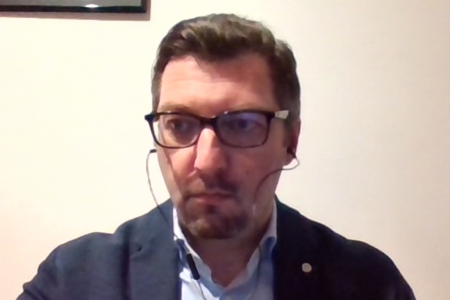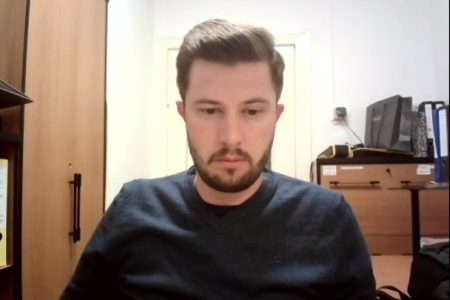BOS alumni panel on the topic of recently held parliamentary elections in Germany was held on October 29. The alumni had the opportunity to hear about election results, new government composition, its priorities and political implications on the European, Union Western Balkans and Serbia.
The panel was moderated by Aleksandar Ivkovic from the portal European Western Balkans and a member of the XXVI BOS generation.
Nemanja Rujevic, a journalist from Germany, pointed out that the clear loser of the elections is CDU and that the new government coalition will create SPD, the Liberals and the Greens. He commented on the uncharacteristically internally focused campaign in this election.
Petar Curcic from the Institut of European Studies spoke about the increasing average age of German constituents and the inclusion of youth, as well as about the tendency towards moderate stances of most relevant parties.
Speaking about the impact of the elections on the EU, Srdjan Majstorovic, member of the V generation and Chairman of CEP Governing Board mentioned the relevance of the relationship Germany has with Hungary and Poland and the respective differences stemming from historical relations. He pointed out that an important part of Merkel's legacy is the Berlin process..
Continuing on the subject of Merkel's legacy, Stefan Surlic from the Faculty of Political Science and a member of the XVIII Generation singled out her constructive and moderate approach. He said that regarding the future government, the relationship between the Greens and the Liberals will be crucial.
The panellists agreed we should not expect significant changes regarding german policy towards the Western Balkans and Serbia. During the Q&A, they explained the situation in the party Alternative for Germany and spoke about the stances of different parties on multiculturalism.





